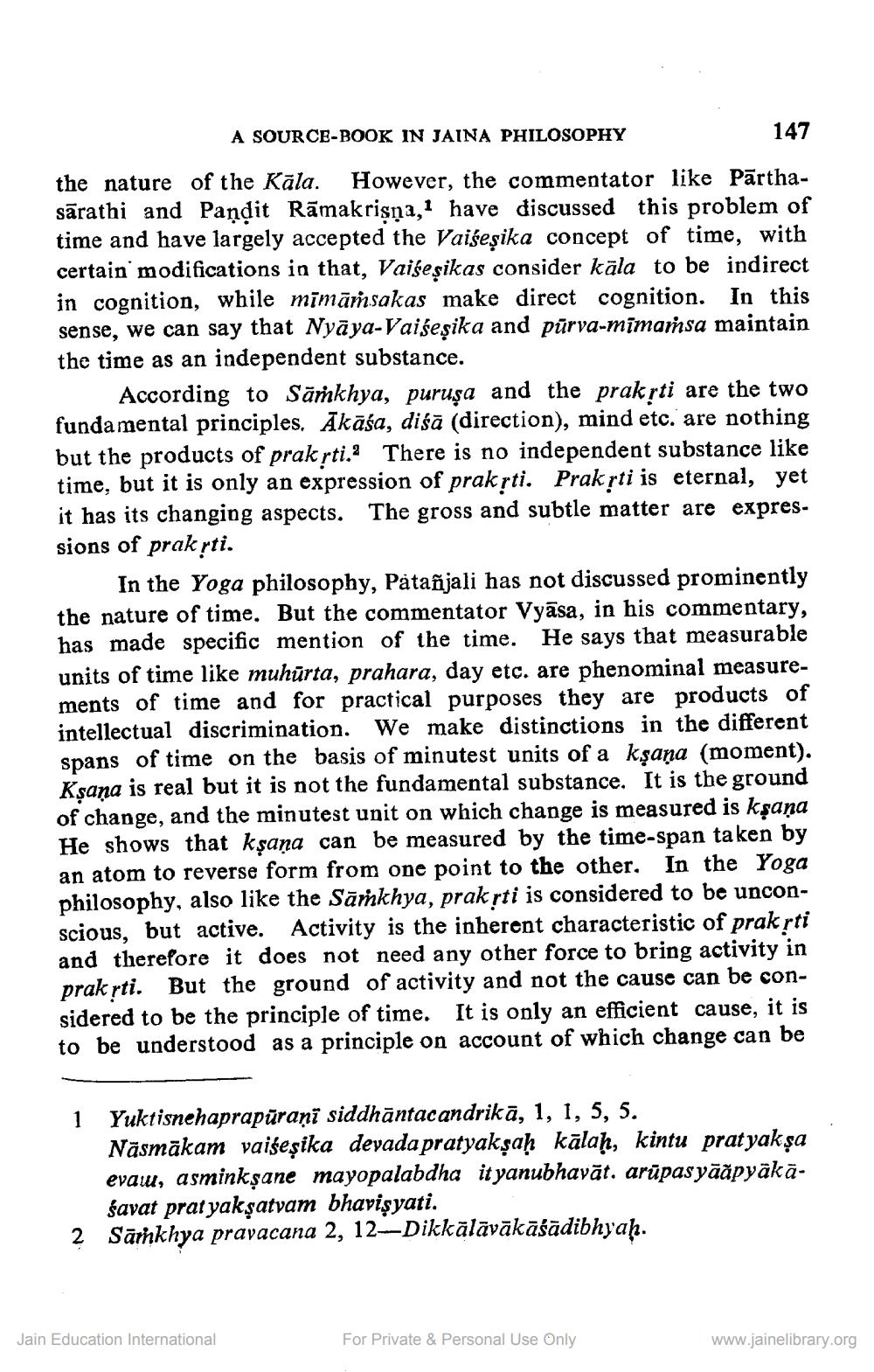________________
A SOURCE-BOOK IN JAINA PHILOSOPHY
147 the nature of the Kāla. However, the commentator like Pārthasārathi and Pandit Rāmakrisņa, i have discussed this problem of time and have largely accepted the Vaiseșika concept of time, with certain' modifications in that, Vaiseșikas consider kāla to be indirect in cognition, while mīmāṁsakas make direct cognition. In this sense, we can say that Nyāya-Vaiseșika and pūrva-mimarnsa maintain the time as an independent substance.
According to Sāṁkhya, puruşa and the prakrti are the two fundamental principles, Ākāśa, diśā (direction), mind etc. are nothing but the products of prakrti. There is no independent substance like time, but it is only an expression of prakrti. Prakrti is eternal, yet it has its changing aspects. The gross and subtle matter are expres. sions of praksti.
In the Yoga philosophy, Patañjali has not discussed prominently the nature of time. But the commentator Vyāsa, in his commentary, has made specific mention of the time. He says that measurable units of time like muhūrta, prahara, day etc. are phenominal measurements of time and for practical purposes they are products of intellectual discrimination. We make distinctions in the different spans of time on the basis of minutest units of a kşana (moment). Ksana is real but it is not the fundamental substance. It is the ground of change, and the minutest unit on which change is measured is kşaņa He shows that kşaņa can be measured by the time-span taken by an atom to reverse form from one point to the other. In the Yoga philosophy, also like the Sāṁkhya, prakrti is considered to be unconscious, but active. Activity is the inherent characteristic of prakrti and therefore it does not need any other force to bring activity in prak yti. But the ground of activity and not the cause can be considered to be the principle of time. It is only an efficient cause, it is to be understood as a principle on account of which change can be
1
Yuktisnehaprapūraņī siddhāntacandrikā, 1, 1, 5, 5. Näsmākam vaiseșika devada pratyakṣaḥ kālaḥ, kintu prat yakşa evaw, asminkşane mayopalabdha it yanubhavāt. arūpas yāàpyākāśavat prat yakşatvam bhavişyati. Sārnkhya pravacana 2, 12-Dikkālāvākāśādibhyah.
2
Jain Education International
For Private & Personal Use Only
www.jainelibrary.org




